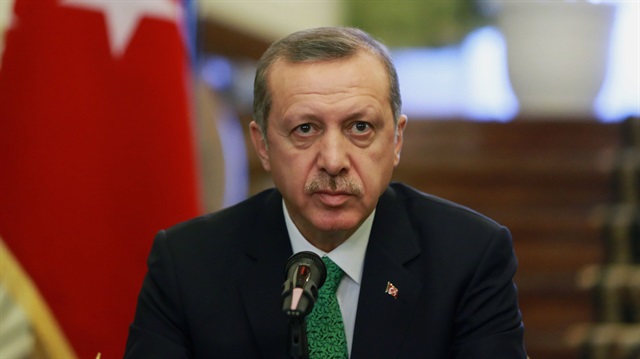

Disillusioned with the West, Turkish president says 'Turkey does not need to join the EU 'at all cost''
President Tayyip Erdoğan said on Sunday that Turkey did not need to join the European Union "at all costs" and could instead become part of a security bloc dominated by China, Russia and Central Asian nations.
NATO member Turkey's prospects of joining the EU look more remote than ever after 11 years of negotiations, as Ankara has grown increasingly disillusioned with the Europe's ambivalent - often opponent - stance towards Turkey's war on terror, especially after July 15 failed coup attempt.
"Turkey must feel at ease. It mustn't say 'for me it's the European Union at all costs'. That's my view," Erdoğan says while telling reporters on his plane on the way back from a visit to Pakistan and Uzbekistan.
"Why shouldn't Turkey be in the Shanghai Five? I said this to (Russian President) Mr Putin, to (Kazakh President) Nazarbayev, to those who are in the Shanghai Five now," he said.
"I hope that if there is a positive development there, I think if Turkey were to join the Shanghai Five, it will enable it to act with much greater ease."
China, Russia and four Central Asian nations -- Kazakhstan, Kyrgyzstan, Tajikistan and Uzbekistan -- formed the Shanghai Cooperation Organisation (SCO) in 2001 as a regional bloc to ensure the security of their borders.
Turkish membership of the SCO, which had initially not included Uzbekistan and been known as the Shanghai Five, would be likely to alarm Western allies and fellow NATO members.
Kazakhstan, Kyrgyzstan and Uzbekistan speak Turkic languages, and Ankara signed up in 2013 as a "dialogue partner" saying it shared "the same destiny" as members of the bloc.
Mongolia, India, Iran, Pakistan and Afghanistan are SCO observers, while Belarus, like Turkey, is a dialogue partner.
Dialogue partners are entitled to take part in ministerial-level and some other meetings of the SCO, but do not have voting rights.
Erdoğan last week urged Turks to be patient until the end of the year over relations with Europe and said a referendum could be held on EU membership in 2017.
The EU is treading a fine line in relations with Turkey: it needs Ankara's continued help in curbing a huge flow of migrants, especially from Syria.
However, Turkey's relations with the EU have strained due to the its harboring and supporting PKK and FETÖ members, especially after the latter had staged the failed coup of July 15, by infiltrating Turkish institutions, particularly army, in which more than 240 people were killed by putschists.
#Erdoğan
#Turkey
#Shangai
#Five
#Russia
#FETÖ
#PKK





